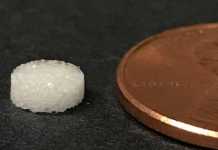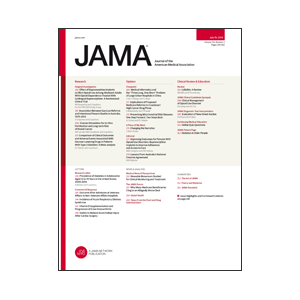February 2007 - Despite laboratory evidence that zinc helps promote the production and action of insulin, and widespread marketing of zinc supplements for this purpose, no randomized clinical trials show that zinc supplementation prevents the onset of type 2 diabetes.
However, this doesn�t necessarily mean that zinc doesn�t have a role in diabetes prevention. Rather, eligible studies are lacking, according to authors of a new systematic review of clinical studies, led by Vania Beletate of the Federal University of Sao Paola in Brazil.
The review appears in the current issue of The Cochrane Library, a publication of The Cochrane Collaboration, an international organization that evaluates medical research. Systematic reviews draw evidence-based conclusions about medical practice after considering both the content and quality of existing medical trials on a topic.
"It is important to recognize that this systematic review - was left with one trial that treated 56 people with either zinc or placebo for four weeks and observed no effect," said John Buse, M.D, an American Diabetes Association spokesman who was not involved with the review. "The single trial is too small and too short to really tell us anything about the effectiveness of zinc."
The zinc-insulin link is supported by test-tube research: Laboratory studies show that "insulin may form a complex with zinc improving the solubility of this hormone in the pancreatic beta cells," the researchers say.
Continue Reading Below ↓↓↓
Insulin is needed to process glucose in the body. When insulin production or action is impaired, type 2 diabetes can follow. Zinc has a role in how the body produces and uses insulin, and because the body does not produce zinc on its own, "it must be obtained from outside sources," the Cochrane researchers say.
Of the 192 clinical studies they identified involving zinc, insulin and type 2 diabetes, only one study ultimately met all criteria for inclusion in the review.
In the study, 56 obese women who did not have diabetes were randomized into two groups, receiving either 30 mg oral zinc supplementation or a placebo daily for four weeks. Using blood tests, the investigators monitored changes in insulin resistance, insulin concentration, fasting plasma glucose and other measures associated with the development of type 2 diabetes.
They reported no significant differences between the zinc-supplementation and placebo groups for any of the measures.
The Cochrane reviewers say that four weeks was not sufficient time to assess the development of glucose intolerance and diabetes.
"Basically we know nothing that can definitively guide clinicians in providing advice regarding zinc supplementation in diabetes," said Buse, who is the director of the Diabetes Care Center at the University of North Carolina School of Medicine.
The reviewers concur with Buse in their conclusion: "There is currently no evidence to suggest the use of zinc supplementation for the prevention of type 2 diabetes mellitus."
Beletate V, El Dib RP, Atallah AN. Zinc supplementation for the prevention of type 2 diabetes mellitus (Review). Cochrane Database of Systematic Reviews 2007, Issue 1.
The Cochrane Collaboration is an international nonprofit, independent organization that produces and disseminates systematic reviews of health care interventions and promotes the search for evidence in the form of clinical trials and other studies of interventions. Visit http://www.cochrane.org for more information.
Source: HBNS
Continue Reading Below ↓↓↓









